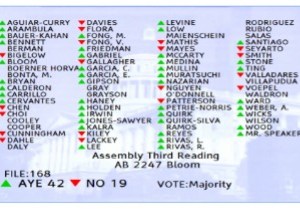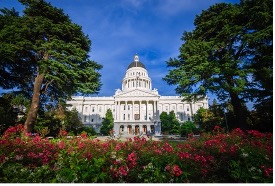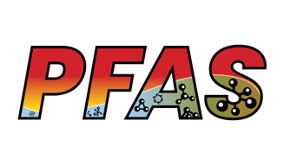AB 2247 Passes off the Assembly Floor!
 CASA is happy to report that AB 2247 passed off the Assembly Floor yesterday evening and is now headed to the Senate. It was a close vote and was passed with one vote to spare! Thank you to all the agencies that reached out and expressed support to their Assembly Members, it made a big difference in this bill getting passed. Please contact Jessica Gauger with any questions.
CASA is happy to report that AB 2247 passed off the Assembly Floor yesterday evening and is now headed to the Senate. It was a close vote and was passed with one vote to spare! Thank you to all the agencies that reached out and expressed support to their Assembly Members, it made a big difference in this bill getting passed. Please contact Jessica Gauger with any questions.
May Revise
 On May 13, Governor Newsom released his May Revision of the State Budget which includes additional funding for climate and drought response. The May Revision proposes $1.6 billion in drought response funding in addition to the $250 million drought contingency funding included in the January Budget proposal. Included in the package are the following funding allocations:
On May 13, Governor Newsom released his May Revision of the State Budget which includes additional funding for climate and drought response. The May Revision proposes $1.6 billion in drought response funding in addition to the $250 million drought contingency funding included in the January Budget proposal. Included in the package are the following funding allocations:
- $530 to support water recycling and groundwater cleanup; advance drinking water and clean water projects that leverage significant federal infrastructure funds; and continue aqueduct solar pilots.
- $553 million to provide grants to urban water districts and smaller community water suppliers for drought-relief projects; support data, research, and public education campaigns; support local technical assistance emergency drinking water response, including the purchase and pre-positioning of water storage tanks; enhance water rights enforcement and modernization tools; and support food assistance programs for farmworkers impacted by drought.
- $280 million to address fish and wildlife impacts associated with drought and climate change, and to build aquatic habitat and water resilience projects to support implementation of voluntary agreements with water suppliers.
- $187 million to support agricultural water conservation practices; incentivize farmers to install more efficient irrigation equipment and provide on-farm technical assistance; provide direct relief to small farm operators; and support additional water conservation projects.
- Of particular interest is a May Revise memo from Department of Finance to the Legislature (page 18) in which the Water Board repurposes $400 million appropriated to water and wastewater in 2021-22 as one-time funding and new positions for the Clean Water State Revolving Fund and Drinking Water State Revolving Fund (SRFs). The funds will specifically be used as the state ‘s required cost share to leverage Federal grant funding for the SRFs. Using the funding in this manner would draw down a significant federal infusion into the state revolving funds of and increase funding in the Clean Water SRF by more than $500 million over 5 years. The language also includes the statutory changes we have been advocating for with the legislature to repeal certain limiting conditions for the use of federal SRF funding for principle forgiveness.
Additionally, the May Revise includes several other allocations of interest, including:
- Enhanced Surveillance—$16 million for the Department of Public Health in 2022-23 to continue activities to that allow tracking and monitoring of transmission of COVID-19 through wastewater surveillance, epidemiologic data analysis, modeling of future data trends, and research on the long-term impacts of COVID-19.
- $200 million to the Department of Community Services to assist with additional ongoing water and wastewater arrearages through the LIHWWAP program.
- Coastal Restoration and Protection—$50 million one-time General Fund for the State Coastal Conservancy for the acquisition of real property. Building climate resilience may require acquisition of critical shoreline properties to protect natural resources, provide for public access, and implement the state’s nature-based solutions agenda.
- California Climate Information System—$18.3 million one-time General Fund for the integration and analysis of the most current climate monitoring data to provide information and decision-making tools for all entities that are working on the climate crisis. This funding will support the initial planning and development of the system, which will international sources that can be used by all interested parties to better inform the ultimately comprise a central hub for climate data from local, state, federal, and state’s climate work and future state investments.
- Methane Satellites—$100 million Greenhouse Gas Reduction Fund on a one-time basis to expand the number of satellites launched for methane observations, which would provide weekly measurement of large methane emissions in the state and enhance enforcement capabilities. This data will allow California to identify the source of these emissions, work with programs to hold emitters accountable for violations, and further reduce the amount of short-lived climate pollutants in the atmosphere.
- AB 617 Community Air Protection Program—$20 million Greenhouse Gas Reduction Fund on a one-time basis for the Community Air Protection Program, which reduces emissions in communities with disproportionate exposure to air pollution through targeted air monitoring and community emissions reduction programs. The Governor’s Budget included $240 million to support AB 617 investments; this additional allocation will bring the total proposed investment to $260 million.
- $5.2 billion to invest in a Strategic Electricity Reliability Reserve. The resources from which the Reserve will be developed may include existing generation capacity that was scheduled to retire, new generation, new storage projects, clean backup generation projects, diesel and natural gas backup generation projects with emission controls and all required permits, and customer side load reduction capacity that is visible to and dispatchable by the California Independent System Operator (CAISO) during grid emergencies.
Over the next month the Legislature will hear these items in Budget subcommittees and negotiate with the Administration to develop the final Budget package. The Budget is required to be passed by June 15th. CASA will be advocating for our priorities throughout the Budget process and will keep CASA members informed of further Budget developments. Please contact Jessica Gauger with any questions.




 @CASA_CleanWater
@CASA_CleanWater